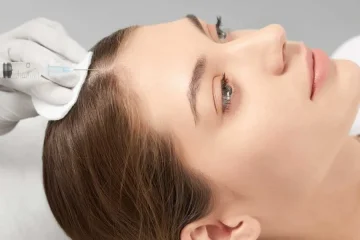Which Vitamin Deficiency Can Cause Yellow Teeth in Your Kids?

Most, but not all, respondents in Merced will say that they would prefer to show a bright white smile rather than one that is stained when asked which option they would like.
When it comes to feeling comfortable and creating a solid first impression, how your kid’s smile feels is essential. Did you know that more factors besides food stains and illnesses can cause discoloration of teeth? Your kid’s teeth may appear more yellow if there is a shortage or lack of specific vitamins and minerals in their body. If you are looking for teeth cleaning services, contact a Merced dentist.
Will your kid’s teeth turn yellow due to a deficiency of Vitamins?
A vitamin deficiency occurs when your kid’s body cannot absorb enough of one or more vitamins. Typical symptoms that individuals can experience are as follows:
- Hair loss
- Fatigue
- Discoloration
- Brittle nails
- Dry skin
It is essential to keep in mind that vitamin deficiencies are not the sole cause of stained teeth. Genetics, aging, tobacco use (smoking or chewing), consumption of specific foods and beverages (such as berries, tea, coffee, tomato sauces, and soda), and oral infections are other food items that might cause teeth to turn yellow or darken.
All things considered, the most common cause of discoloration is a vitamin deficiency, specifically in vitamins A, C, and D.
Vitamin A deficiency
This vitamin promotes the health and capacity of your kid’s immune system. Furthermore, it prevents the growth of periodontal (gum) disease. A deficiency of Vitamin A in the body can lead to sensitivity or a reduction in saliva production. When saliva is absent, harmful substances can accumulate on their teeth and gums, causing cavities and, if unchecked, tooth loss. Saliva cleans away bacteria and debris that can damage their teeth.
Vitamin C deficiency
Since vitamin C develops the body’s diverse connective tissues, it is essential to the development of collagen. Similar to Vitamin A deficiency, inadequate levels of this vitamin can also promote gum disease and its potentially harmful outcomes.

Vitamin D deficiency
This vitamin maintains the power of your kid’s smile. Their body’s capacity to absorb calcium, which is found in dairy products like milk and cheese, is influenced by vitamin D. They may have loose teeth and bone loss if their vitamin D levels are extremely low.
Since vitamin D is also obtained via sunlight, many kids suffer from vitamin D deficiency during the winter months when their daily intake is lower.
Do not hesitate to get in touch with a dentist if you believe that your kid’s smile discoloration may be due to a vitamin deficiency. They will have the answers to all of your queries.
Other reasons why your kid’s teeth appear yellow
If they have plaque accumulation
Insufficient brushing can cause plaque to build up on the tooth’s surface, leading to a yellow appearance.
If they are suffering from cavities
Cavities and tooth decay can cause teeth discoloration and yellowing. On teeth that have decay, you might find black patches. These patches tend to develop into cavities or holes in the teeth eventually.
If they sustain injuries
If your child suffers a dental injury, blood vessels may rupture, giving a look of yellow, brown, gray, or black teeth. After an injury, the teeth’s capillaries may burst, leading to a buildup of blood (or hemosiderin) in the tooth canals. Even the tooth enamel itself may be damaged.
How can you brighten up your kid’s smile with some extra effort in your daily routine?
Various methods are available to whiten your kid’s smile to a noticeable degree. Even though a lot of patients choose professional or at-home teeth whitening, porcelain veneers, and dental bonding may also help manage this issue.
Before moving ahead, speak with your child’s dentist to find out which procedure works best for what you are facing. They will perform a physical examination of your child’s teeth and oral cavity and, if necessary, take X-rays. Furthermore, they will discuss with you your expectations, medical and dental history, and personal preferences.













